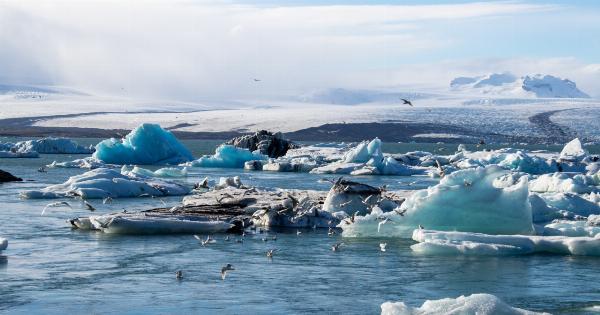With every passing year, the news is flooded with more and more reports of record high temperatures and extreme weather events like hurricanes, flooding, and droughts.
In 2020, the world witnessed one of the warmest years in history, and the trend shows no signs of slowing down. According to Dr. Costas Synolakis, a researcher and professor of natural disasters and risk at the University of Crete in Greece, the rise in heat is not an isolated issue, but part of a larger trend that needs to be addressed immediately.
The Impact of Rising Heat on the Environment
Rising temperatures have a significant impact on the environment, leading to increased rates of desertification, deforestation, and the widespread melting of glaciers and ice sheets.
The result is not only a loss of biodiversity but also the release of greenhouse gases that further exacerbate the problem of global warming. As temperatures continue to rise, the world’s oceans will also warm, leading to a rise in sea levels that could submerge coastal cities and lead to widespread flooding, particularly in areas that are already vulnerable.
The Impact of Rising Heat on Human Health
The rise in heat is not only a threat to the environment but also a significant risk to public health. As temperatures rise, the risk of heatstroke and heat exhaustion increases, particularly for vulnerable populations such as the elderly and children.
In addition, rising temperatures can lead to the spread of diseases such as malaria and dengue fever by expanding the range of the mosquitoes that carry them. The rise in heat can also lead to poor air quality and an increase in ground-level ozone, both of which can trigger respiratory problems for people with asthma and other lung conditions.
The Role of Society in Addressing the Rise in Heat
While addressing the rise in heat is a complex issue that requires global cooperation, there are steps that individuals and societies can take to help slow the trend.
One of the most effective steps is to reduce greenhouse gas emissions by adopting more sustainable forms of energy such as wind and solar power. Individuals can also reduce their personal carbon footprint by reducing their consumption of meat, driving less, and choosing more energy-efficient appliances.
The Importance of Public Education
One of the biggest challenges in addressing the rise in heat is a lack of understanding and awareness of the issue among the public. As such, education and outreach are critical in driving change.
By providing clear and concise information about the causes and impacts of global warming, individuals can make more informed choices about how they live, work, and consume. Governments can also play a critical role in promoting public education by investing in public awareness campaigns, providing incentives for sustainable behavior, and supporting research and development into new forms of sustainable energy.
The Way Forward
The rise in heat is a problem that affects us all and requires collective action to address.
By taking steps to reduce greenhouse gas emissions, promote sustainable behavior, and invest in public education, we can begin to slow the trend and build a more sustainable future. The challenges of global warming are significant, but the window of opportunity to address them is still open. Working together, we can build a world that is not only resilient to the effects of global warming but also equitable and just for all.
The Bottom Line
The rise in heat is a pressing issue that requires immediate attention. From the impact on the environment to the risks to public health, the stakes are high.
By working together, we can build a more sustainable and equitable future that is resilient to the effects of global warming.































